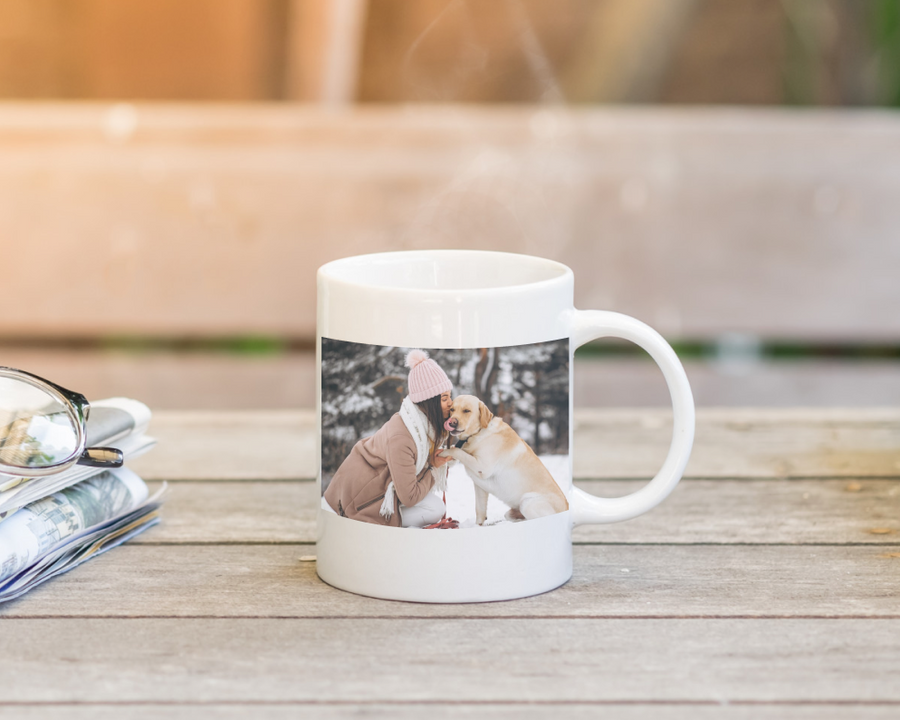Canvas Prints
Upload Your PhotoBranded Clothes
The Psychology of Labels: Unpacking the Branded Clothes Craze
There's something about the crispness of a designer label, the subtle thrill of running your hand over a finely embroidered logo, and then, of course, that unmistakable satisfaction in knowing - and showing - that you own something in vogue. Branded clothes aren't just pieces of fabric; they're emblems of identity, signifiers of social standing, and sometimes, they morph into our alter egos. It's a topic swirling with emotion and psychology, and it's about much more than mere threads.

Decoding the Allure of Branded Fashion
The allure of designer threads has plenty of layers that go beyond mere aesthetics and fabric quality. For many, adorning a name-brand piece represents a multitude of things - taste, exclusivity, and, for some, the reward for hard work or a treat for milestones met. But there’s a more intricate phenomenon at play here. Buying and wearing branded clothing is a statement, not just a material act. It’s a subtle social cue, a declaration of identity and aspiration. People knowingly - or unknowingly - make assumptions about the wearer based on the brand they sport. But beyond this social signaling, there is something intensely personal about the connection we forge with our favorite labels. It's a sense of belonging, a nod to a brand's identity echoing our own.
Sustainable Fashion: A Branded Boost to the Environment

Thankfully, the narrative of branded fashion isn't exclusively about opulence and excess. A counter-movement, heralding the era of sustainable fashion, is subtly starting to shift the tides. Branded clothing, quite often, leads by example. Big labels have begun to refashion their supply chains to promote fair labor practices, decrease environmental harm, and encourage a circular economy. This transformation isn't just regulatory; it's a response to a growing body of consumers who seek brands that align with their values. The result is a win for the environment and a more meaningful kind of fashion statement.
Quality Check: Unbranded vs. Branded
One commonly held belief is that the extra digits on a price tag are a direct reflection of quality. But is this always true? Branded clothes often do offer a higher standard of craftsmanship and materials, but that’s not to say there aren’t hidden gems in the world of unbranded attire. The name is indeed one component of the cost, accounting for intangible value and a measure of craftsmanship. However, there’s a broader conversation to be had about the value proposition inherent in branded clothing. Are you paying for superior quality, or are you paying for perception?

The Celebrity Stamp on Branded Clothes
Enter the celebrity, the juggernaut in the world of branded clothes. When stars align their personal branding with a fashion label, it's often akin to a golden touch. Their endorsement not only boosts the visibility of the brand but also, in a way, shares part of the celebrity’s charisma with those who wear it. The psychological impact is significant; celebrity endorsements tap into the desires of fans who want a slice of their idol's lifestyle. The influence is so strong that a mere social media post can create a buying frenzy, reflecting the deep connection we have to the clothes we wear and the personalities we admire.

The Aftermarket of Fashion: Branded Clothes and Resale Value
Branded clothes, sometimes more than their unbranded counterparts, have an enduring financial value. A secondary market thrives on the resale of luxury items, and some brands are like stocks that hold their value over time. Their appeal doesn't just fade; often, it increases, making them a somewhat lucrative investment. There’s a sense of timelessness in these pieces, a narrative that connects styles across the years, and the resale market gives that story a new home, a new chapter, and sometimes, a pretty penny.

Historical Timeline of the Branded Craze
To understand the current obsession with branded clothes, it's vital to trace the lineage. Once, labels were merely utilitarian, helping consumers identify their preferred brands. Now, those same labels are symbols of high fashion and a booming industry. We've witnessed the evolution of brands from being markers of quality to allegories for status. From Coco Chanel's timeless elegance to streetwear powerhouses like Supreme, the story of brands in fashion is the story of fashion itself.
What Can Ethics Teach Us About Fashion?
Our clothes don't just stitch together fabric; they tell stories of the people who made them. The oppressive sweatshops of the past cast a long shadow over modern fashion, and ethical concerns are something the conscious consumer can't ignore. Brands, as the torchbearers of the fashion industry, are facing this reckoning head-on, some with sincerity, and others with skepticism. The dialogue on ethical fashion is more pressing than ever, and it's reshaping the choices we make as consumers.
Conclusion
The world of branded clothes is an intricate dance, a melange of emotional connections, economic choices, and societal pressures. Through the lens of consumer behavior and ethical considerations, the role that branded fashion plays in our lives continues to unfold. Whether you're a label loyalist or a brand skeptic, there's no denying the impact these cloth monikers have on our psychology and the planet. It stands as a testament to the power clothes - and the names on them - hold in our hearts and on our bodies.
In the end, the choice to wear a brand isn't just about what's in your wardrobe; it's about what you want the world to see. It's about the stories you carry, the values you champion, and the impact you want to make. And perhaps, therein lies the enduring appeal of branded clothes - they tell the world, in a silent shout, who you are or who you aspire to be.

